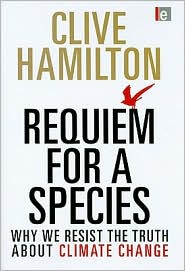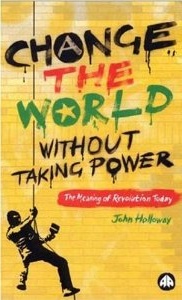
Determinism is the philosophical view that events are completely determined by previously existing causes. Deterministic theories throughout the history of philosophy have developed from diverse and sometimes overlapping motives and considerations. Like eternalism, determinism focuses on particular events rather than the future as a concept. The opposite of determinism is indeterminism, or the view that events are not deterministically caused but rather occur due to chance. Determinism is often contrasted with free will, although some philosophers claim that the two are compatible.

In the fields of sociology and political science, authority is the legitimate power of a person or group over other people. In a civil state, authority is practiced by the legislative, executive, and judicial branches of government.
Some philosophers distinguish two types of rights, natural rights and legal rights.

Anthony Giddens, Baron Giddens is an English sociologist who is known for his theory of structuration and his holistic view of modern societies. He is considered to be one of the most prominent modern sociologists and is the author of at least 34 books, published in at least 29 languages, issuing on average more than one book every year. In 2007, Giddens was listed as the fifth most-referenced author of books in the humanities. He has academic appointments in approximately twenty different universities throughout the world and has received numerous honorary degrees.

The Constitution of Mexico, formally the Political Constitution of the United Mexican States, is the current constitution of Mexico. It was drafted in Santiago de Querétaro, in the State of Querétaro, by a constituent convention, during the Mexican Revolution. It was approved by the Constituent Congress on 5 February 1917. It is the successor to the Constitution of 1857, and earlier Mexican constitutions. "The Constitution of 1917 is the legal triumph of the Mexican Revolution. To some it is the revolution."

Self-ownership is the concept of property in one's own body, expressed as the moral or natural right of a person to have bodily integrity. It states that the individual should be the exclusive controller of their own body and life, where 'control' means exerting any physical influence and 'exclusive' means having the right to install and enforce a ban on other people doing this.
Capital accumulation is the dynamic that motivates the pursuit of profit, involving the investment of money or any financial asset with the goal of increasing the initial monetary value of said asset as a financial return whether in the form of profit, rent, interest, royalties or capital gains. The aim of capital accumulation is to create new fixed and working capitals, broaden and modernize the existing ones, grow the material basis of social-cultural activities, as well as constituting the necessary resource for reserve and insurance. The process of capital accumulation forms the basis of capitalism, and is one of the defining characteristics of a capitalist economic system.

Anarchy, State, and Utopia is a 1974 book by the American political philosopher Robert Nozick. It won the 1975 US National Book Award in category Philosophy and Religion, has been translated into 11 languages, and was named one of the "100 most influential books since the war" (1945–1995) by the UK Times Literary Supplement.

Two Treatises of Government is a work of political philosophy published anonymously in 1689 by John Locke. The First Treatise attacks patriarchalism in the form of sentence-by-sentence refutation of Robert Filmer's Patriarcha, while the Second Treatise outlines Locke's ideas for a more civilized society based on natural rights and contract theory. The book is a key foundational text in the theory of Liberalism.

Antony Garrard Newton Flew was an English philosopher. Belonging to the analytic and evidentialist schools of thought, Flew worked on the philosophy of religion. During the course of his career he taught philosophy at the universities of Oxford, Aberdeen, Keele, and Reading in the United Kingdom, and at York University in Toronto, Canada.
Adultism identifies a problem in adults' attitudes and actions toward children. It has been defined in different ways. In 1978, psychologist Jack Flasher defined it as "the power adults have over children". More narrowly, adultism has been defined as "prejudice and accompanying systematic discrimination against young people". On a more philosophical basis, the term has also been defined as "bias towards adults... and the social addiction to adults, including their ideas, activities, and attitudes".
In psychology, the right-wing authoritarian (RWA) is a personality type that describes somebody who is highly submissive to their authority figures, acts aggressively in the name of said authorities, and is conformist in thought and behavior. The prevalence of this personality type in a population varies from culture to culture, as a person's upbringing and education play a strong role in determining whether somebody develops this sort of personality.

Islamic Government, also known as The Jurist's Guardianship: Islamic Government, (Persian: حکومت اسلامی ولایت فقیه, Velayat-e faqih: Hokumat-i Eslami) is a book by the Iranian Shi'i Muslim cleric/jurist, and revolutionary, Ayatollah Ruhollah Khomeini. First published in 1970, it is perhaps the most influential document written in modern times in support of theocratic rule.

John Holloway is a Marxist-oriented lawyer, sociologist and philosopher, whose work is closely associated with the Zapatista movement in Mexico, his home since 1991. It has also been taken up by some intellectuals associated with the piqueteros in Argentina; the Abahlali baseMjondolo movement in South Africa and the Anti-Globalization Movement in Europe and North America. He is currently a professor at the Institute for Humanities and Social Sciences at the Autonomous University of Puebla.

Freedom of speech is a principle that supports the freedom of an individual or a community to articulate their opinions and ideas without fear of retaliation, censorship, or legal sanction. The right to freedom of expression has been recognised as a human right in the Universal Declaration of Human Rights and international human rights law by the United Nations. Many countries have constitutional law that protects free speech. Terms like free speech, freedom of speech, and freedom of expression are used interchangeably in political discourse. However, in a legal sense, the freedom of expression includes any activity of seeking, receiving, and imparting information or ideas, regardless of the medium used.

The constitution of the United Kingdom or British constitution comprises the written and unwritten arrangements that establish the United Kingdom of Great Britain and Northern Ireland as a political body. Unlike in most countries, no attempt has been made to codify such arrangements into a single document, thus it is known as an uncodified constitution. This enables the constitution to be easily changed as no provisions are formally entrenched; the Supreme Court of the United Kingdom recognises that there are constitutional principles, including parliamentary sovereignty, the rule of law, democracy, and upholding international law.

Requiem for a Species: Why We Resist the Truth about Climate Change is a 2010 non-fiction book by Australian academic Clive Hamilton which explores climate change denial and its implications. It argues that climate change will bring about large-scale, harmful consequences for habitability for life on Earth including humans, which it is too late to prevent. Hamilton explores why politicians, corporations and the public deny or refuse to act on this reality. He invokes a variety of explanations, including wishful thinking, ideology, consumer culture and active lobbying by the fossil fuel industry. The book builds on the author's fifteen-year prior history of writing about these subjects, with previous books including Growth Fetish and Scorcher: The Dirty Politics of Climate Change.

There are many varieties of positive and negative effects of criticism. This article describes common types that occur regularly in everyday life. For other criteria that classify criticisms, see Criticism § Classifications. For more subject-specific information, see the pages on topics such as art, film, literature, theatre, or architecture.
In the law of England and Wales, best interest decisions are decisions made on behalf of people who do not have mental capacity to make them for themselves at the time the decision needs to be taken. Someone who has the capacity to make a decision is said to be "capacitous". Since 2007, there has been a dedicated court with jurisdiction over mental capacity: the Court of Protection, although it mostly deals with adults. Most applications to make decisions on behalf of a child are still dealt with by the Family Court.
This is a glossary of policy debate terms.














